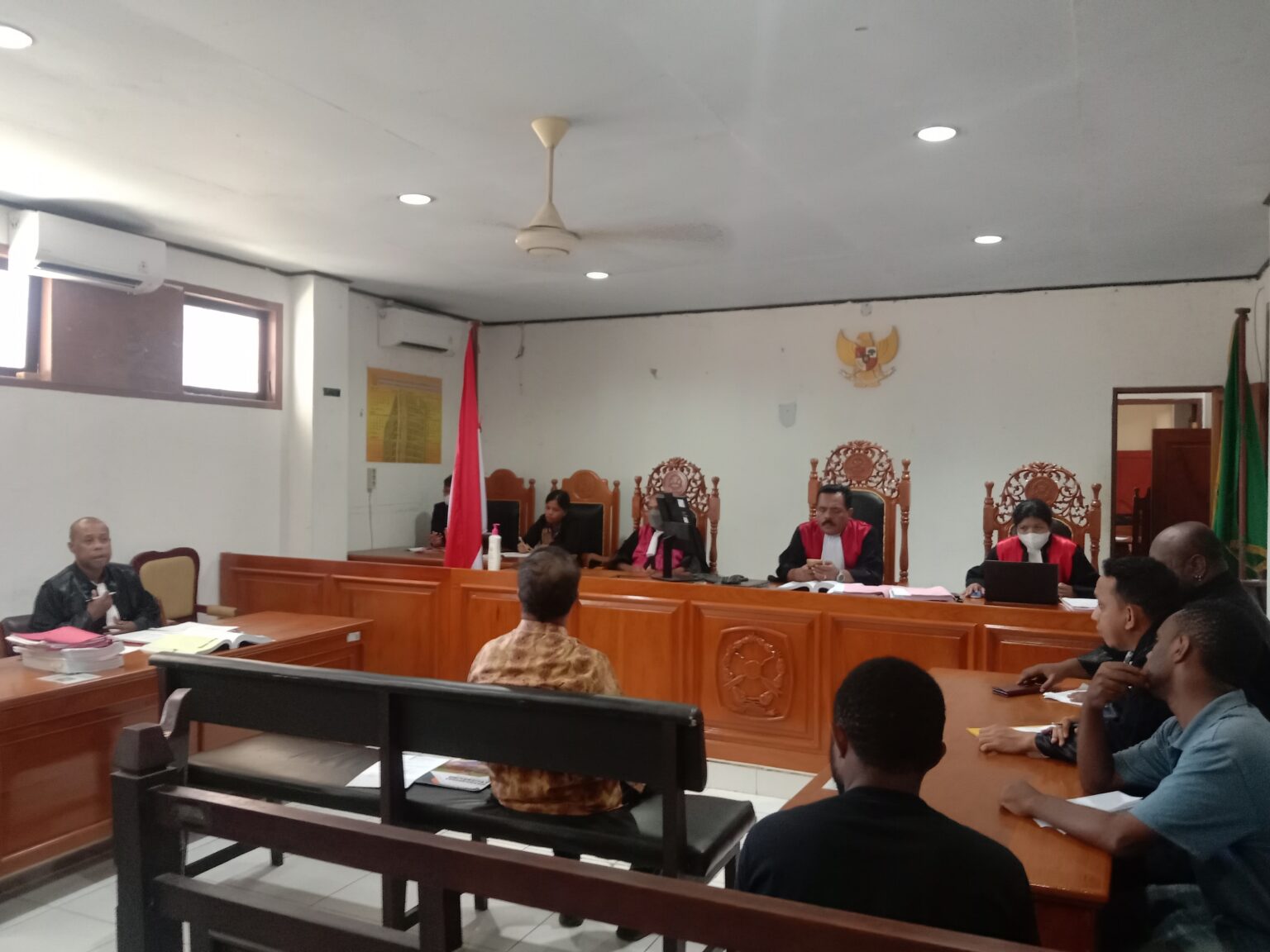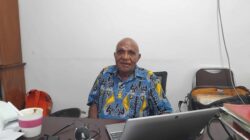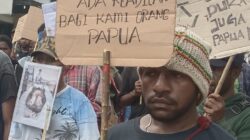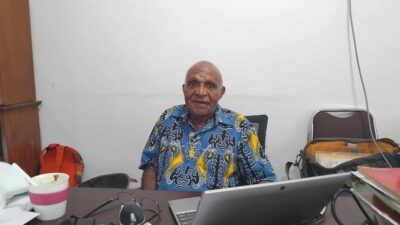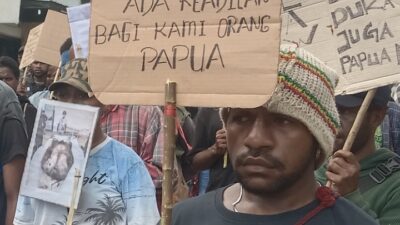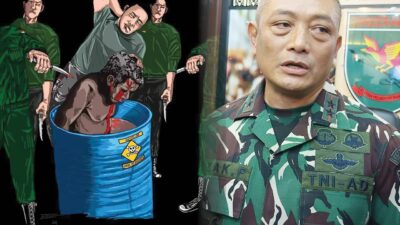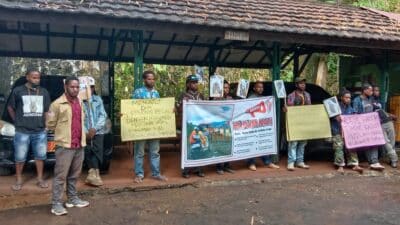Jayapura, Jubi – The trial of three students accused of treason continued at the Jayapura District Court on Thursday, June 8, 2023. The defendants, Yoseph Ernesto Matuan, Devio Tekege, and Ambrosius Fransiskus Elopere, were charged with treason for organizing a free speech at the Jayapura University of Science and Technology (USTJ) on November 10, 2022, where they raised the Morning Star flags.
During the hearing, linguist Robert Masreng testified as a witness presented by the public prosecutor. He said the Morning Star flags displayed in the event were merely an expression.
The students organized a protest to voice opposition against the Papua dialogue plan initiated by the National Commission on Human Rights (Komnas HAM). However, the event was dispersed by the police, resulting in the arrest of several participants.
Robert Masreng, a faculty member at Cenderawasih University’s Faculty of Teacher Training and Education, clarified the definitions of treason, independence, Morning Star, conspiracy, and the meanings of writings displayed during the free speech.
Robert said that according to the Indonesian thesaurus dictionary, “treason” refers to engaging in deceitful actions or manipulating others to achieve personal objectives. It can also denote rebellion, expressing a desire to prevent something from happening. Additionally, Robert noted that treason could signify an intention to commit murder.
In court, Robert explained that treason involves deceptive actions, rebellion, and an intention to commit murder. He emphasized that the Morning Star flag is a symbol that gains meaning when it is used for a specific purpose. Without a clear intention behind its use, the flag loses its importance.
Robert mentioned that the Morning Star flag is often used as a symbol to express ideas. He emphasized that the meaning of the flag can be understood based on how it is used in different situations, and different people may interpret it in their own unique ways.
Furthermore, he clarified the term “independence” by explaining that it represents a perspective of freedom that has a wide-ranging and abstract significance when it is used. The understanding of the word relies on the specific situation and how different people perceive it, especially in relation to the core concept of freedom.
Robert explained that this means when someone realizes or expresses themselves, it implies being free from criticism and oppression.
He also provided an interpretation of the chant “referendum yes, dialogue no.” He stated that the chant conveys a decision to the general public without involving parliament. Rejecting dialogue is an expression of the speaker’s unwillingness to engage in a dialogue.
Regarding the statement requesting the intervention of the United Nations Human Rights Council in Papua, Robert said it signified that the problems in Papua were not limited to domestic concerns but were matters that should be acknowledged by the international community.
“It means an expression of asking the government to be open to the international community, allowing them to enter Papua and observe the dire human rights situations in the region,” he said. (*)


